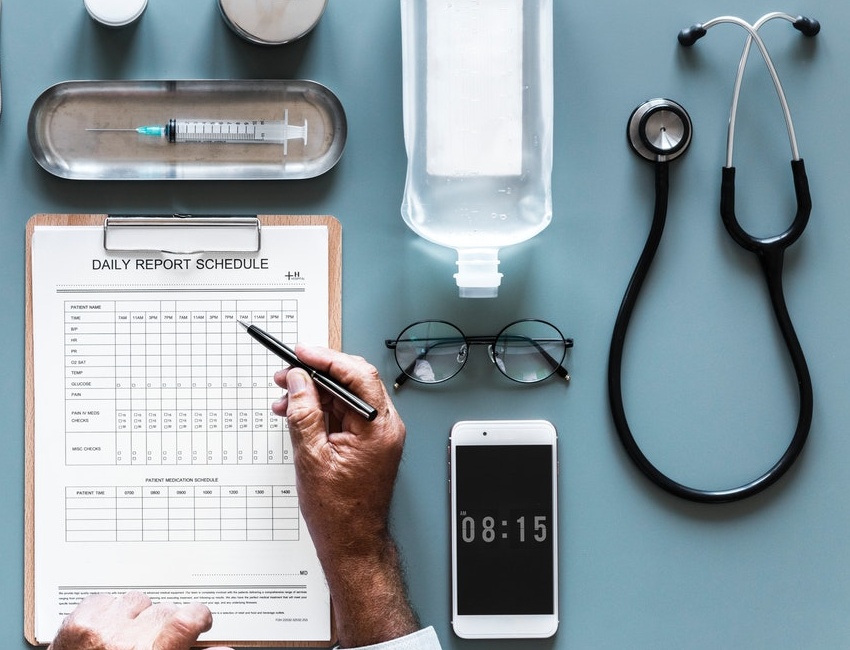The future of telehealth - how asthma will be diagnosed and managed using a smartphone

The future of telehealth - how asthma will be diagnosed and managed using a smartphone
 Dr. Anthony Warren
Dr. Anthony Warren
We have heard a lot about how telemedicine will reduce the cost of healthcare and change the way that we interact with our service providers. But so far, the only benefit that most of us have experienced is the ability to access our health records and make physician appointments securely over the internet; hardly sources of major improvement in health outcomes or treatment efficiencies.
True benefits will only emerge when technology migrates from purely record management to diagnoses and therapies delivered directly over the web. This may not be so far in the future. In most disease categories however, it requires the development of several unique technologies from different sources to be integrated into a full systems solution.
This integration may well be driven by the pharmaceutical sector. Pharmacos wish to move from product to solution driven business models by having direct contact with end-users. This will enable more personalized and integrated treatments, improved outcomes, access to real-time data, and increased value capture. Digital technologies therefore offer major opportunities to large established pharmaceutical companies and many are now heavily involved in exploring telehealth applications.
The enabling technologies will most likely be centered on SmartPhone platforms. These have become ubiquitous, have intuitive user experiences and are relatively inexpensive. They come with significant inbuilt computing power, security protections, and increasingly house accurate physiological sensors.
To explore how technology integration will impact healthcare let’s illustrate the concept in just one disease category – asthma. There are major benefits to target…..
According to the American Academy of Allergy, Asthma & Immunology, an estimated 300 million people globally suffer from asthma, with 250,000 annual deaths attributed to the disease. It is predicted that the number of asthma sufferers will grow by more than 100 million by 2025. And just in the US alone, costs total over $3,500 annually per person diagnosed with asthma from medical expenses, missed school and work days, and early deaths. Total costs currently amount to about $60bn each year!
Let's imagine the not-too-distant future starting with early diagnosis...
ResApp Health, based in Brisbane, Australia has completed clinical trials on its ResAppDx software using a SmartPhone microphone as a personal stethoscope. By analyzing coughing sounds, artificial intelligent algorithms successfully detect and differentiate between pneumonia, acute vs. chronic asthma, and COPD with around 90 percent accuracy for each. Using this App, you will be able to simply cough at your SmartPhone, video connect with your physician who will see the diagnostic results. In the majority of cases, she will be able to determine the severity of your asthma and prescribe the appropriate therapy often without the need for an office visit.
Turning now to therapies...
The first line of help she is likely to prescribe is a bronchodilator to relieve the symptoms by relaxing the muscles that tighten around the airways during an attack. Short-acting bronchodilator inhalers are often referred to as rescue inhalers and are used to quickly relieve the cough, wheeze, chest tightness, and shortness of breath caused by asthma and to avoid a serious exacerbation with a rush to an emergency room visit. It is important that these are used correctly, as over-usage can be deleterious. So medications are more and more likely to be delivered by “smart inhalers”. These are already available and can monitor compliance, dosage, over-usage, and remaining dosages. Using cloud-based data architecture and incorporating GPS location, they “mine the crowd”, to detect environmental triggers and provide personal warnings while delivering usage and outcome results directly to the physician – all this via a SmartPhone. You will of course receive your personal inhaler and medication the next day by overnight secure delivery.
To understand how big an impact these smart inhalers are likely to have, a recent report by Grand View Research lists a who’s who of major companies active in this field. These include Teva Pharmaceuticals - by acquiring Gecko Health; Opko Health, - by acquiring Inspiro Medical; AstraZeneca - by investing in New Zealand-based Adherium; and GSK and Boehringer Ingelheim - by partnering with Propeller Health. Also named are Philips Respironics and Glenmark Pharmaceuticals. Novartis is working separately with Qualcomm Life on a connected inhaler. The report estimates that the market for digital dose inhalers for asthma and COPD will be worth $3.56 billion in 2024.
Asthma can also be alleviated using specific breathing exercises. According to a meta-study of over 20 clinical trials reported by the US Federal Agency for Healthcare Research and Quality, gaining better control of breathing habits can mitigate the severity of asthma attacks, often halving the dependence on rescue inhalers and avoiding trips to the ER. Personalized breath training targeting asthma can now be delivered over the internet directly to a SmartPhone too. So it is likely that your physician will also suggest you improve your breathing techniques at home via the breathesimple app along with using your smart inhaler.
Asthma diagnosis, consultation, digitally guided inhaler management and adjunct breath training all delivered via your SmartPhone. Better outcomes, efficient care delivery, convenient for physician and patient, and lower overall treatment costs. That is what the future is promising and soon.
Follow us on Linkedin to learn more:





